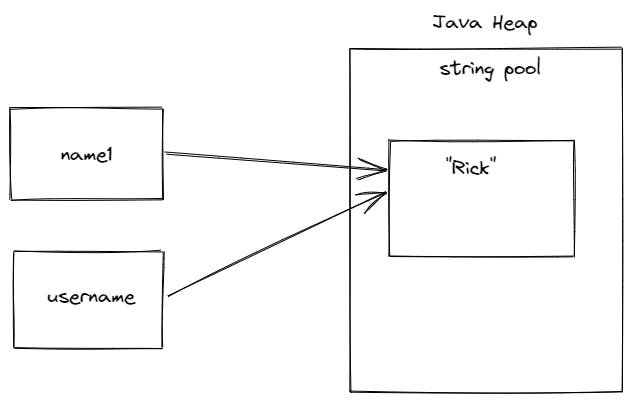What Is Immutable Strings and How It Works
In the world of programming, understanding the idea of immutable strings is paramount for producing safe and durable applications. Immutable strings refer to strings that can not be altered after they are developed, ensuring data honesty and predictability within the code. This basic principle plays an important duty in different programs languages and uses a special approach to managing data. By discovering the intricacies of how immutable strings work, one can discover a globe of benefits and opportunities that can raise the quality and performance of software program growth.
The Fundamentals of Immutable Strings
Unalterable strings, as a basic concept in programming, are personality sequences that can not be changed as soon as they are created. This means that once a string is designated a worth, that value can not be altered. In languages like Python and Java, strings are immutable things, resulting in numerous implications in regards to memory management and information stability.
One of the essential benefits of immutable strings is that they supply a complacency in information control. Because the material of an unalterable string can not be changed, it guarantees that the initial information continues to be intact, minimizing the danger of unplanned changes throughout program implementation (Why are strings immutable in Java?). This home also simplifies debugging processes, as designers can trust that when a string is defined, its worth will not be inadvertently changed
Furthermore, immutable strings help with effective memory usage. When a brand-new string is created based on an existing one, as opposed to changing the initial string, the brand-new value is stored separately. This technique improves performance by decreasing memory fragmentation and streamlining memory appropriation processes. Overall, understanding the essentials of unalterable strings is essential for grasping programming concepts and enhancing code effectiveness.
Benefits of Unalterable Strings
Structure upon the protection and performance advantages of immutable strings, their benefits encompass improving code reliability and simplifying concurrent programs tasks. By being immutable, strings can not be modified after production, which removes the danger of unplanned adjustments in the data they store. This intrinsic immutability guarantees that when a string is created, its value continues to be continuous throughout the program's implementation, reducing the possibilities of bugs triggered by unexpected changes.
Furthermore, unalterable strings add to code dependability by making it easier to reason regarding the state of a program. Since strings can not be changed, developers can rely on that a string will certainly always hold the same worth, streamlining debugging and maintenance initiatives. This predictability results in more steady and dependable codebases.

Application in Shows Languages
Within various programs languages, the unification of immutable strings is a fundamental element that influences just how data is managed and controlled within code structures. The implementation of unalterable strings varies throughout various programming languages, with each language supplying its own mechanisms to sustain this concept.

In contrast, languages like C and C++ do not have built-in support for immutable strings. Programmers in these languages should by hand apply immutability by imposing rules within their code to avoid direct modifications to string items.
Best Practices for Dealing With Immutable Strings
When dealing with unalterable strings in shows languages like Java and Python, adhering to ideal practices makes sure secure and effective information control. One of the vital finest techniques is to use StringBuilder or StringBuffer as opposed to straight adjusting strings, especially when managing substantial concatenation procedures. These classes offer mutable choices for string adjustment, aiding to stay clear of unneeded memory allowances and improving efficiency.
In addition, when functioning with sensitive information such as passwords or API tricks, it is essential to avoid storing them as plain text in immutable strings. Utilizing secure storage systems like char ranges or specialized collections for managing delicate details helps reduce security risks associated with unalterable strings.
Real-world Applications and Instances
Exploring useful executions of immutable strings in different industries discloses their substantial influence on information integrity and system reliability. In the medical care industry, immutable strings play a crucial function Read Full Article in ensuring the safety and discretion of person data. By protecting against unauthorized modifications to delicate information such as clinical records and prescriptions, immutable strings help preserve compliance with rigorous personal privacy policies like HIPAA.
Economic organizations also take advantage of the immutable nature of strings to improve the safety and security of consumer information and deal documents. Immutable strings assist protect against fraud and unapproved alterations to financial info, offering a durable protection against cyber dangers and making sure the count on and self-confidence of clients.

Verdict
To conclude, unalterable strings are repaired and stable sequences of personalities that offer advantages such as string safety and enhanced performance in programs. They are implemented in various programs languages to make certain data stability and safety and security. Finest practices for working with immutable strings consist of preventing straight modifications and making use of approaches that return new string items. Real-world applications of unalterable strings consist of information encryption, caching, and string adjustment tasks.
Unalterable strings refer to strings that can not be changed after they are produced, ensuring data honesty and predictability within the code. When a new string is created based on an existing one, instead than customizing the original string, the websites brand-new value is kept individually.In languages like Java and Python, strings are unalterable by default, implying that once a string object is created, its worth can not be changed - Why are strings immutable in Java?. Ideal methods for working with immutable strings include preventing direct adjustments and utilizing approaches that return brand-new string items. Real-world applications of unalterable strings include information encryption, caching, great post to read and string control tasks
Comments on “Why Are Strings Immutable in Java? Safety and Performance Perks”